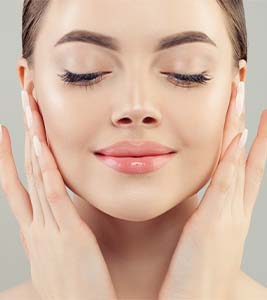Blog
Here Are The Most Common Misconceptions About Skin Care
Everybody is unique from their head to their toes, and because of that, many different ideas about the right way to take care of your skin can emerge.
Over the past year, in particular, there has been a lot of wide-ranging information about skincare, from the rise of skinimalism to the thin-to-thick method for layering skincare products.
Amidst some interesting and useful advice that commonly makes the rounds, there are also a lot of misconceptions, some of which are merely irritating and may require a visit to a skin therapy clinic. Others, however, are outright dangerous.
These are some common myths about skincare and why they are untrue.
You Do Need Sunscreen On A Cloudy Day
There is a belief that UV rays are blocked by clouds in the same way the sun’s heat is and therefore you do not need to wear SPF protection on a cloudy day.
This is 20 per cent true. Up to 80 per cent of the UV rays radiated by the sun reach the earth even on cloudy days, according to the Skin Cancer Foundation.
This is why, even on a drab, overcast day, it’s worth remembering to apply some SPF.
On this topic as well, sunscreens that advertise themselves as “once a day” do not take into account the cream rubbing off or being washed off, so make sure to reapply it throughout.
You Should Not Exfoliate Every Day
Exfoliating is important for removing layers of dead skin cells and allowing new, beautiful skin to emerge. But try not to go overboard.
Whilst many people have been experimenting with exfoliation every day, this can break the skin barrier, strip the skin of moisture and not only cause damage to our skin but cause it to be oilier than when you started.
Try using gentler exfoliants for more sensitive skin.
You Can Use Retinoids On Sensitive Skin
For people with sensitive skin, or around the eyes in general, there is a common misconception that vitamin A products are too strong and can cause irritation.
Whilst this is true for higher strength retinoids, in most cases people can use a retinoid providing they use lower-strength products (around 0.3 per cent) to start with. These are more tolerated by the skin and have fewer side effects.
Not Only Teenagers Get Spots
Whilst teenagers going through puberty can in some cases have quite a few acne breakouts due to hormones, anyone can get spots. In fact, getting acne in adulthood has become increasingly common.
Dermatologists are still exploring the exact causes but it is believed that diet, stress and hormonal fluctuations may be factors that make it worse.
Black Salve Must Never Be Used
One of the most horrifying products that have been solved as a skincare treatment is black salve, which is a paste made of bloodroot extract and zinc chloride that burns and kills every cell it touches.
It has sometimes been marketed as a cancer cure which is exceptionally dangerous and the reason the product is illegal in several countries; not only can it potentially cause serious or fatal injuries but also can cause people to delay getting actual treatment and risking death.

